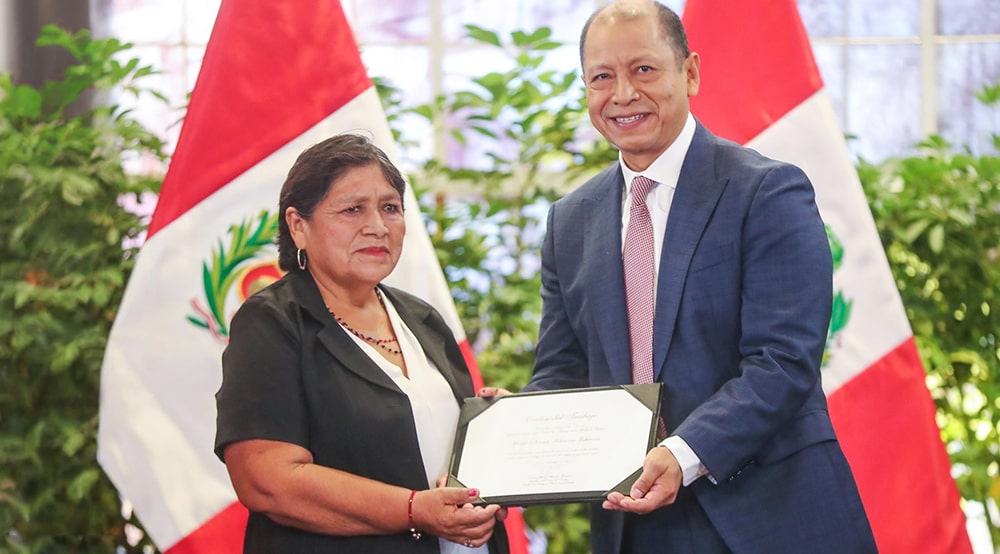In a world where everyday news can obscure stories of hard work and dedication, the story of Gloria Solórzano, organising secretary of the National Network of Self-Employed Workers (Renatta) in Peru, is one that deserves to be told. Gloria was recently awarded the Order of Labour by the government, in recognition of her tireless work in defence of the rights of informal workers in Peru.
Renatta, a 20-year old organisation, started as a street trading network to become a significant force in defending the rights of informal workers. Gloria shares with us the process that led to this unexpected recognition.
The invitation to apply for the award came a month ago, and Gloria, founder of the network, was selected to represent Renatta. The nomination process involved writing a CV highlighting Renatta’s achievements from its beginnings to the present day. The recognition, although unexpected, was received with gratitude and satisfaction.
However, the recognition raised questions about the relationship between Renatta and the current government. Gloria explains that although there are ideological differences with the president, they recognise the value of any support for the informal sector. The hope is that this recognition can open doors for more constructive dialogue and joint actions to address the challenges they face.
Gloria maintains an optimistic outlook and encourages other informal sector leaders to persevere. She stresses the importance of organising, training and actively seeking solutions. Renatta has shown that collective work and determination can bring about significant change, even in difficult circumstances.
Renatta’s evolution since its founding in 2011 has been significant. What began as a network of street vendors has grown to include diverse sectors, such as home-based work, agriculture and recycling. Through training and empowerment programmes, Renatta has strengthened its members and advocated for their rights with government authorities and other institutions.
Renatta’s future looks bright with hope and determination. Despite the challenges they face, they are committed to moving forward and working for positive change in the lives of informal workers in Peru. With the support of allied organisations and the commitment of its members, Renatta will continue to be a powerful voice in the fight for labour justice and social inclusion in the country.
In short, Renatta’s legacy is a powerful reminder of the impact that collective action and persistent dedication can have in the pursuit of a more just and equitable world for all.



